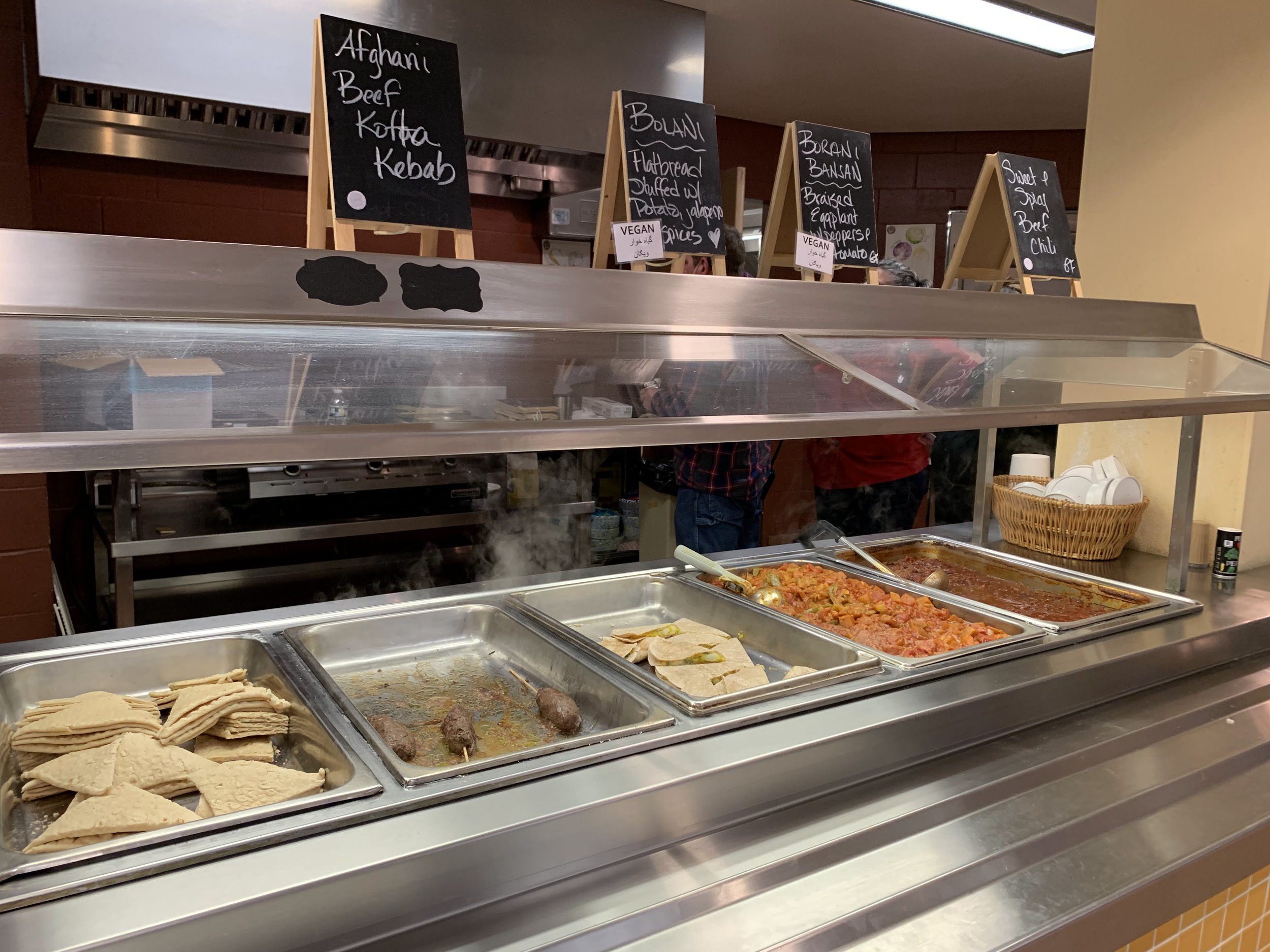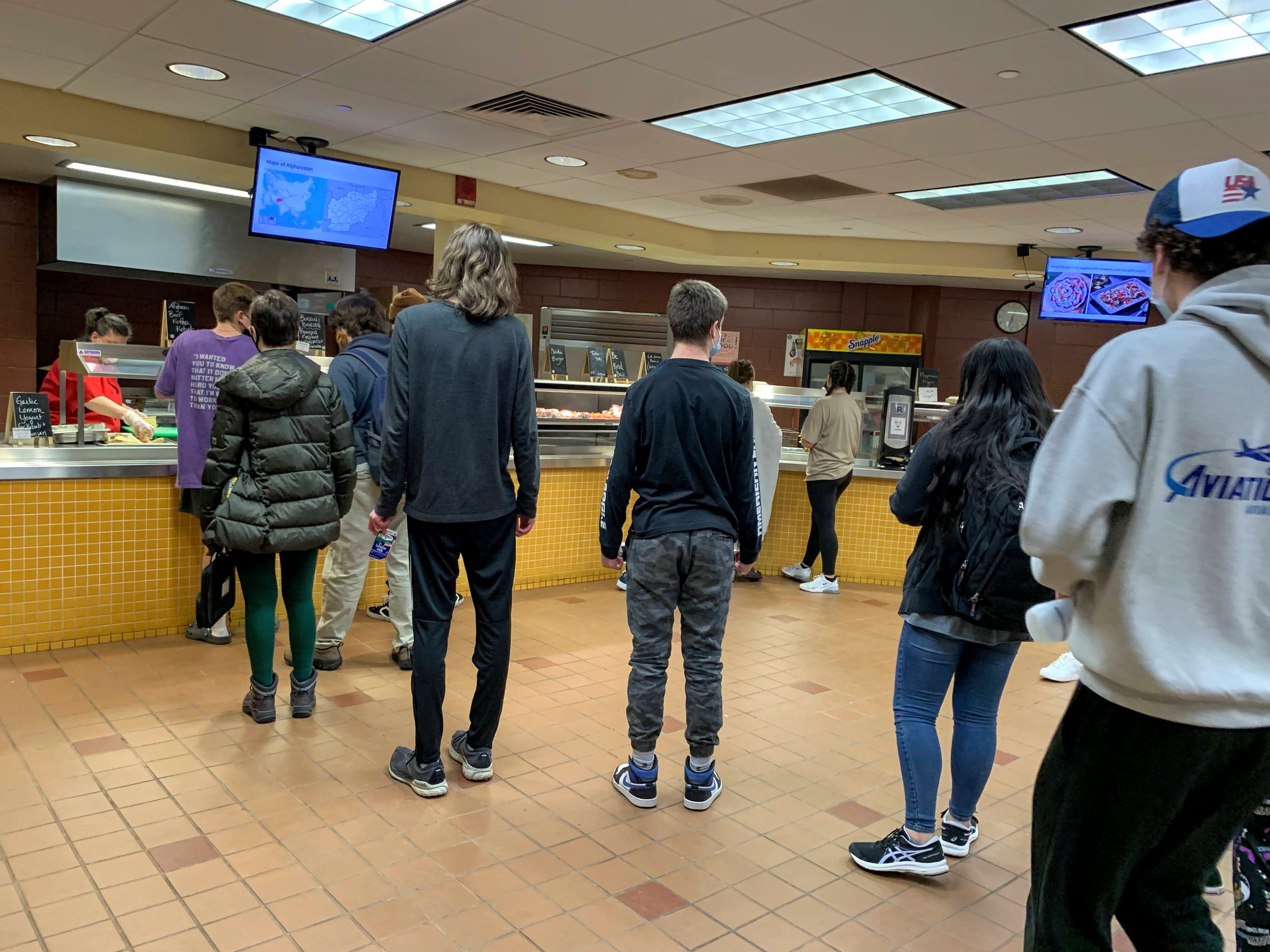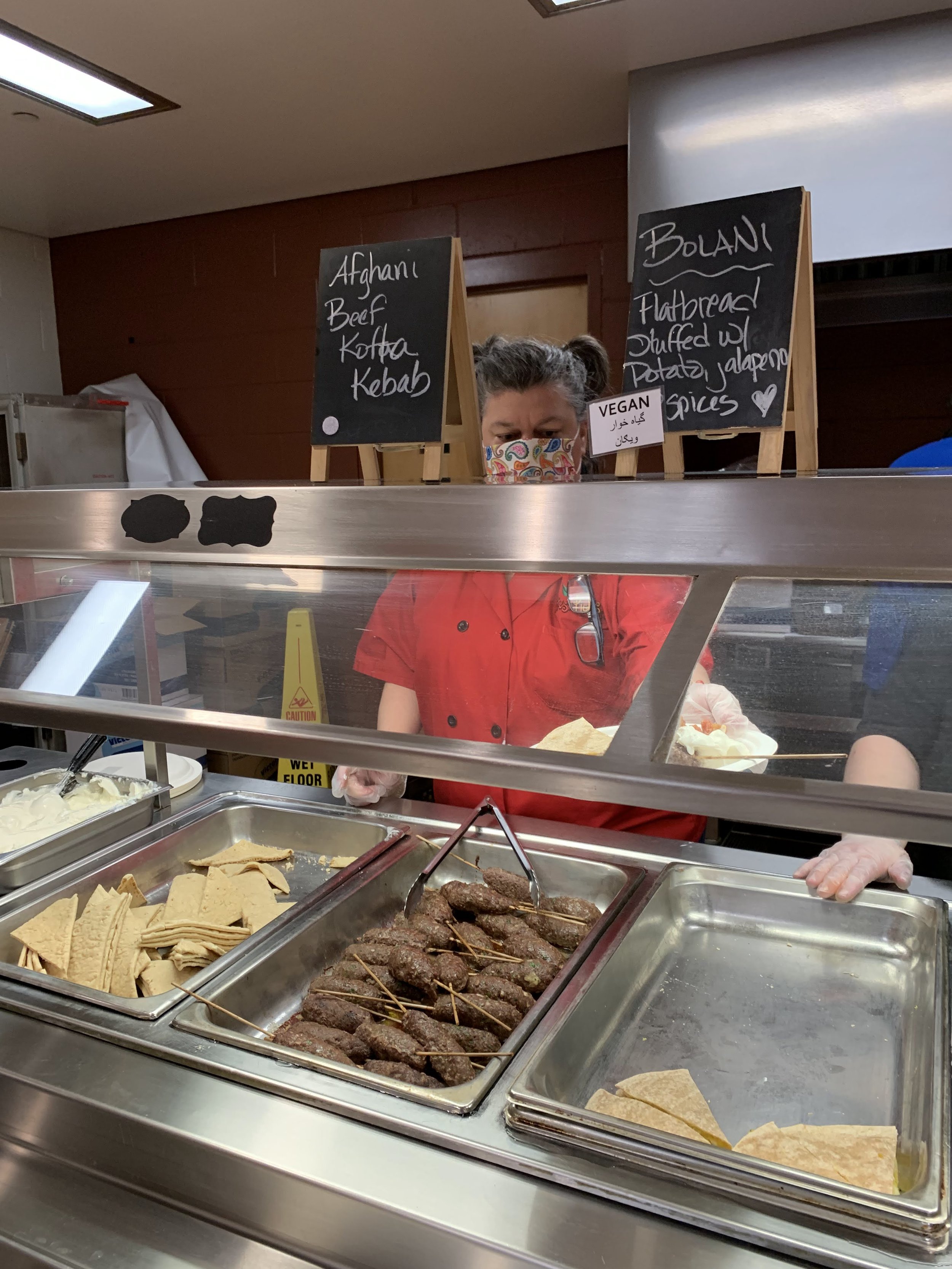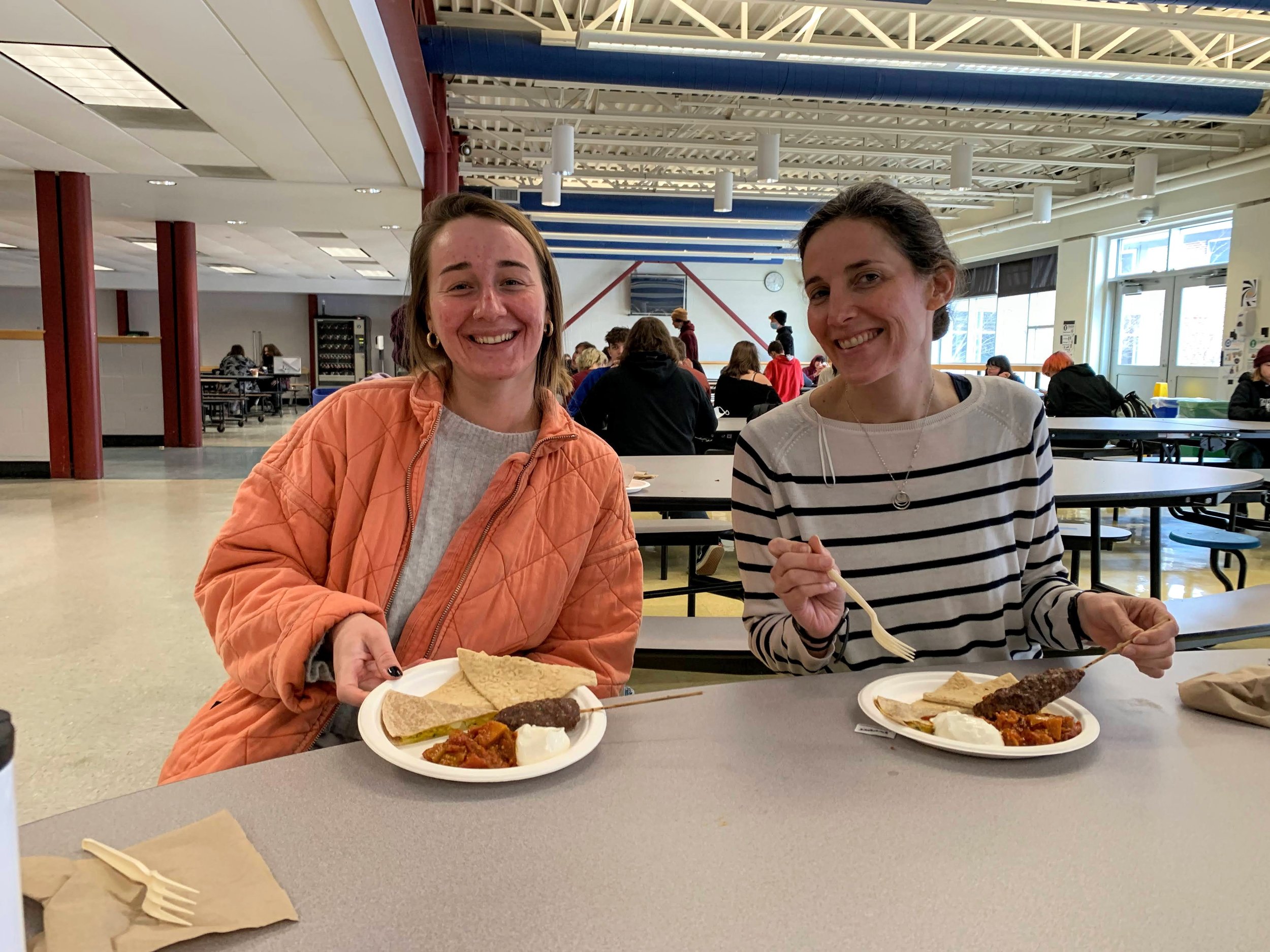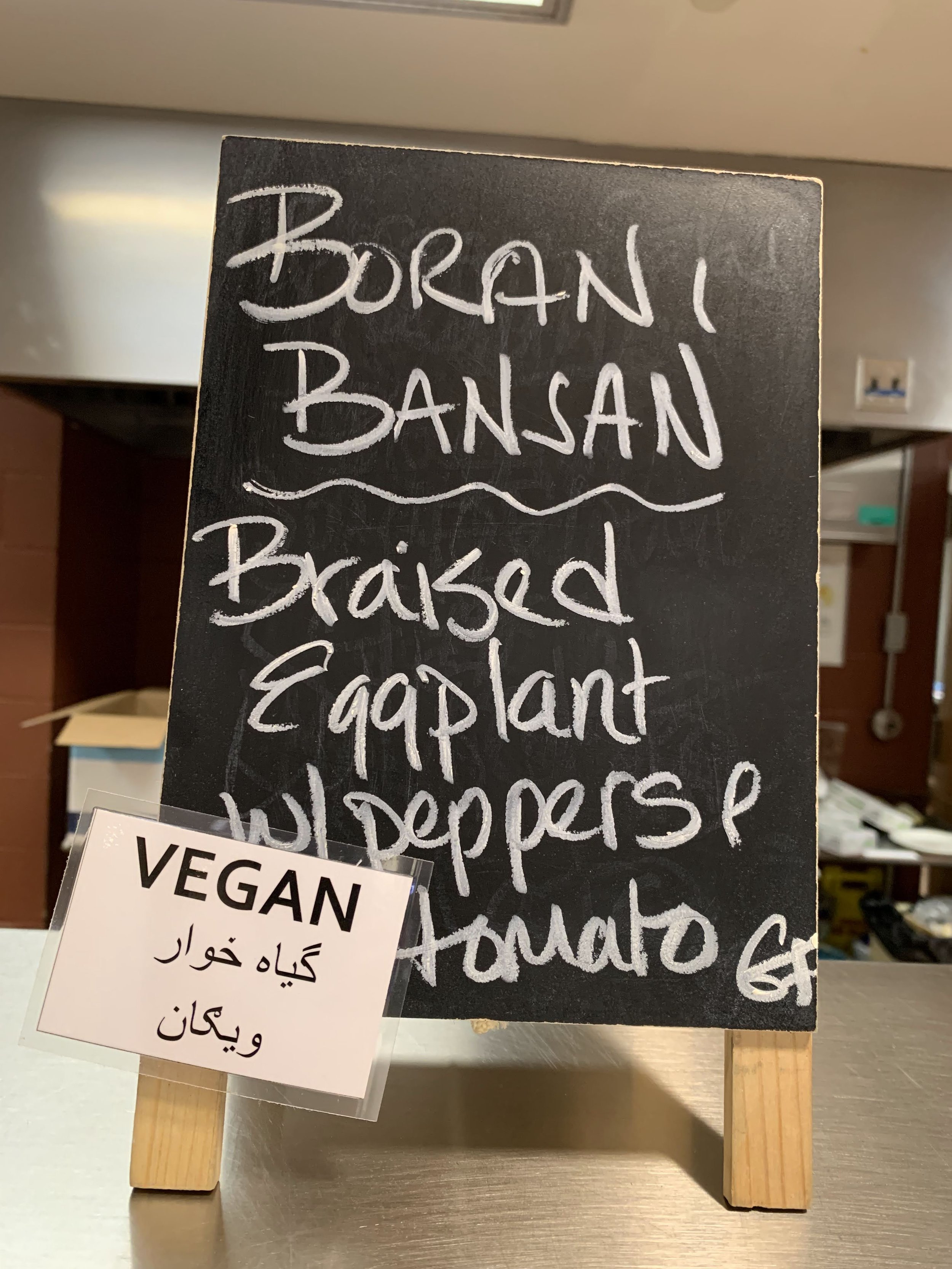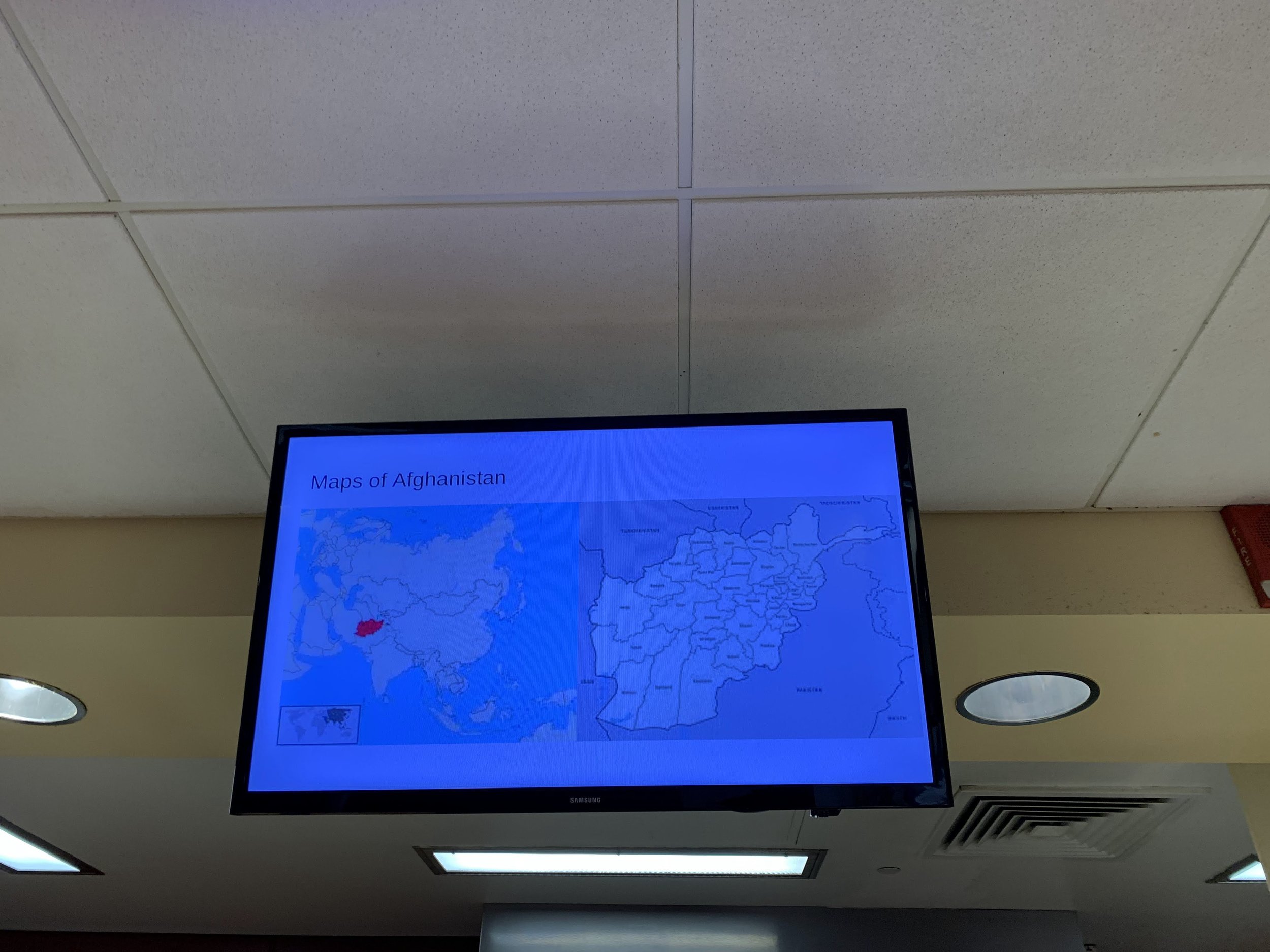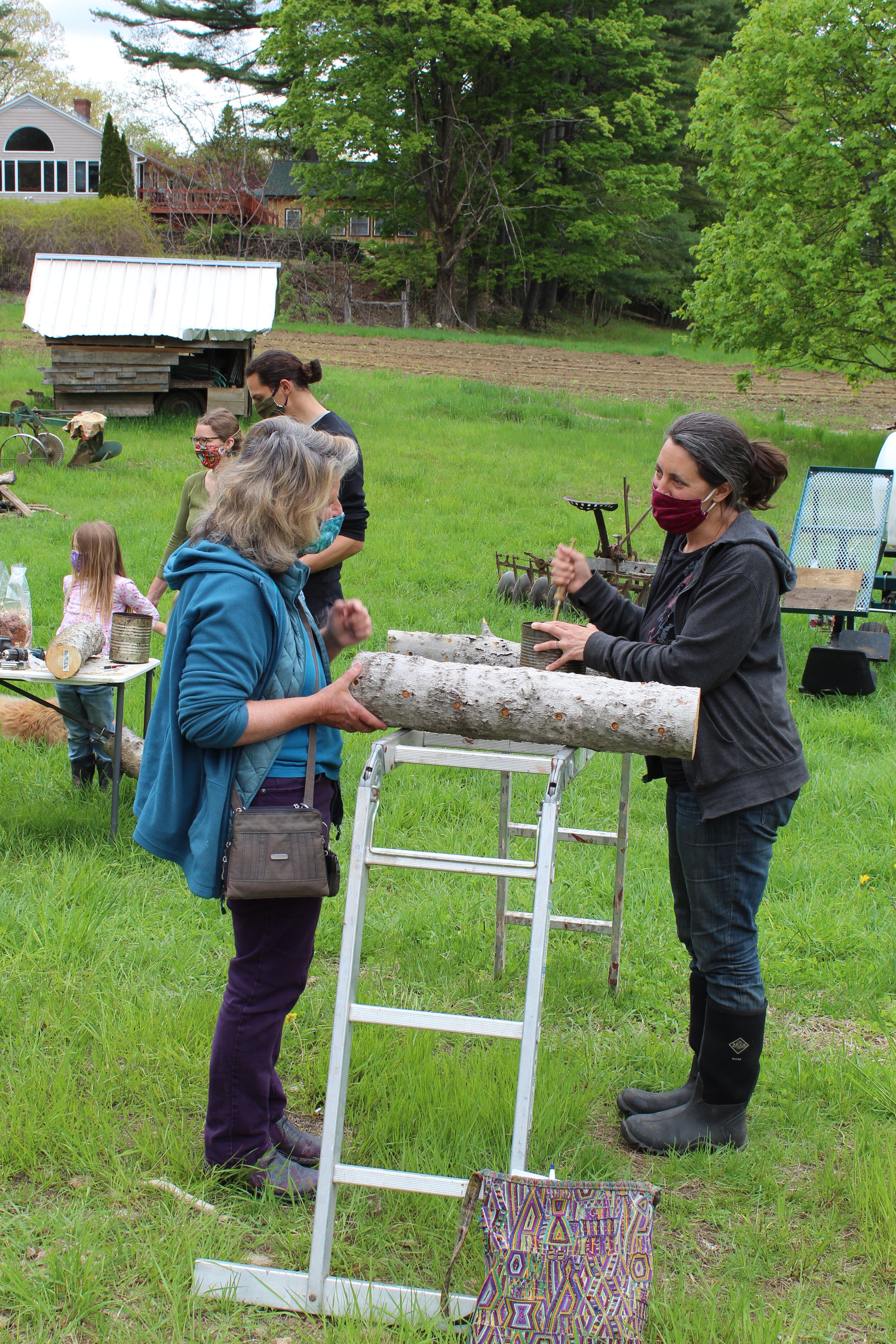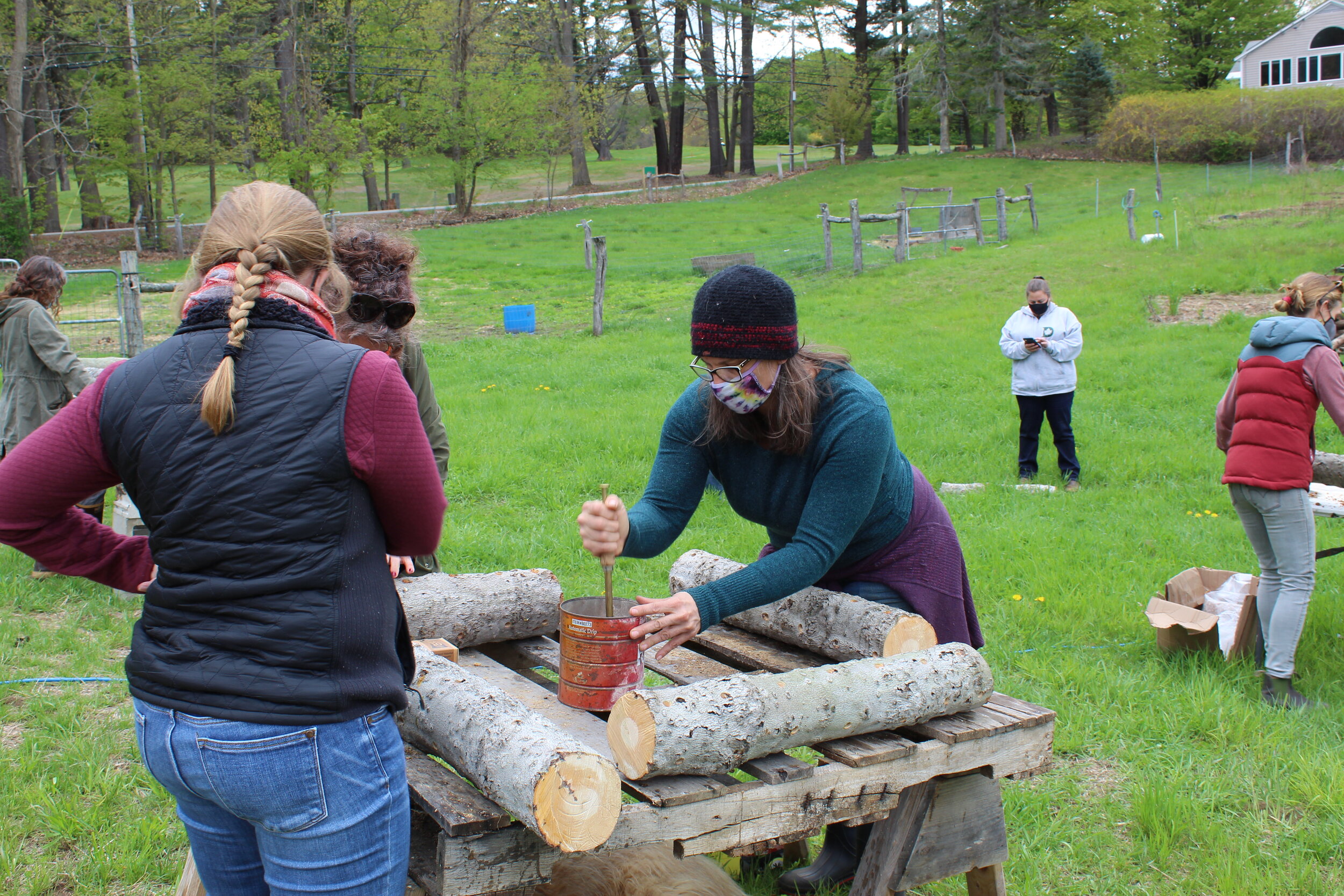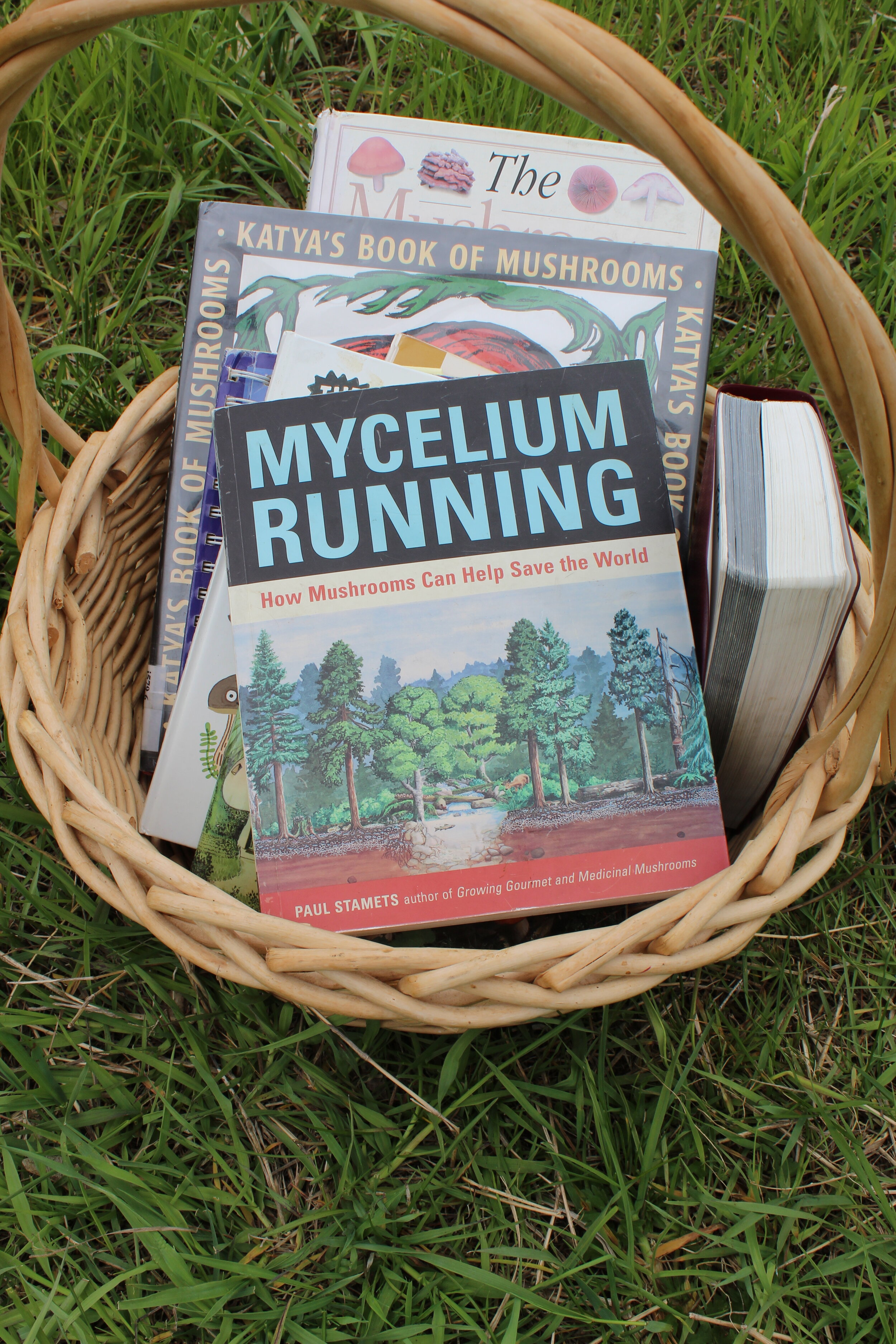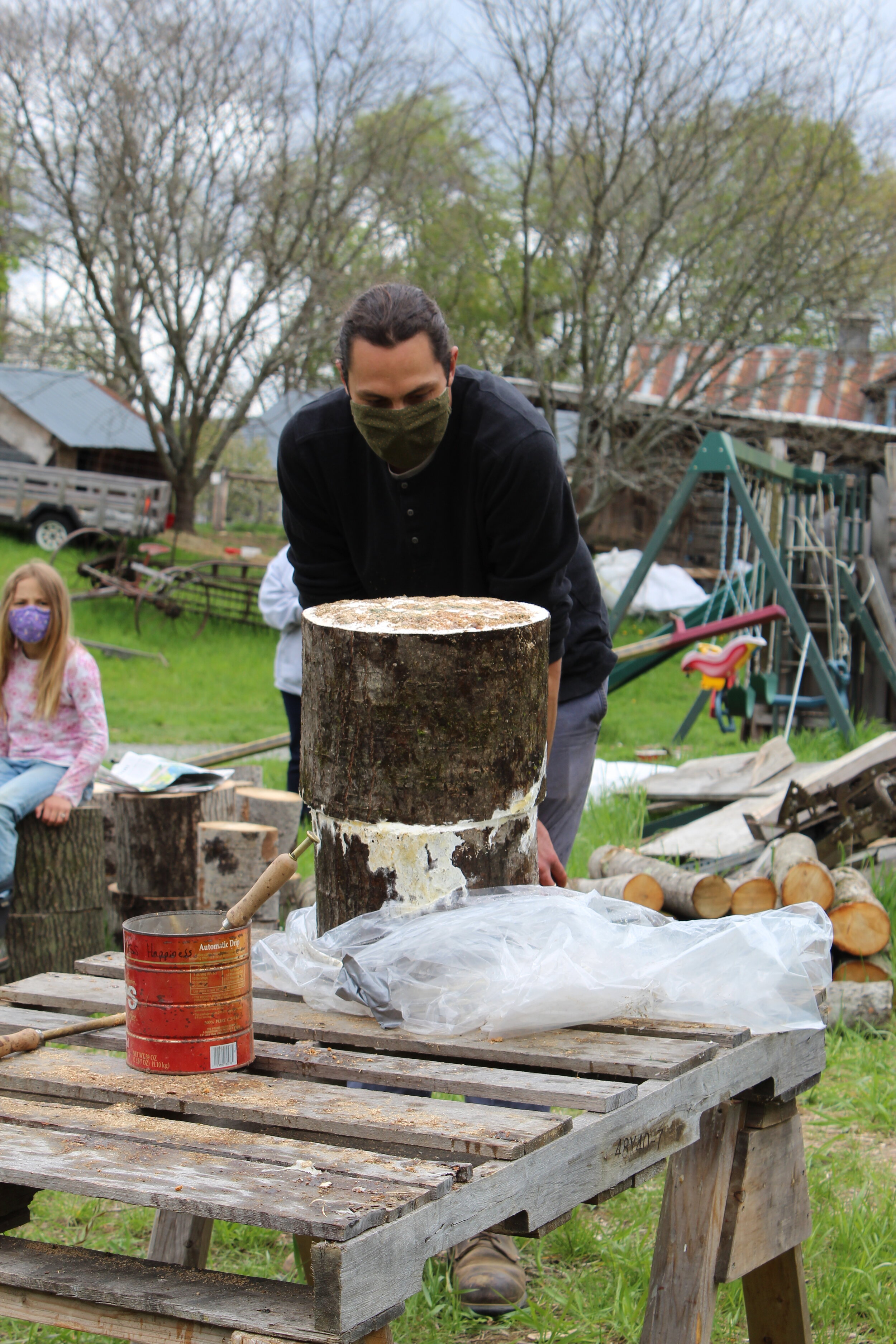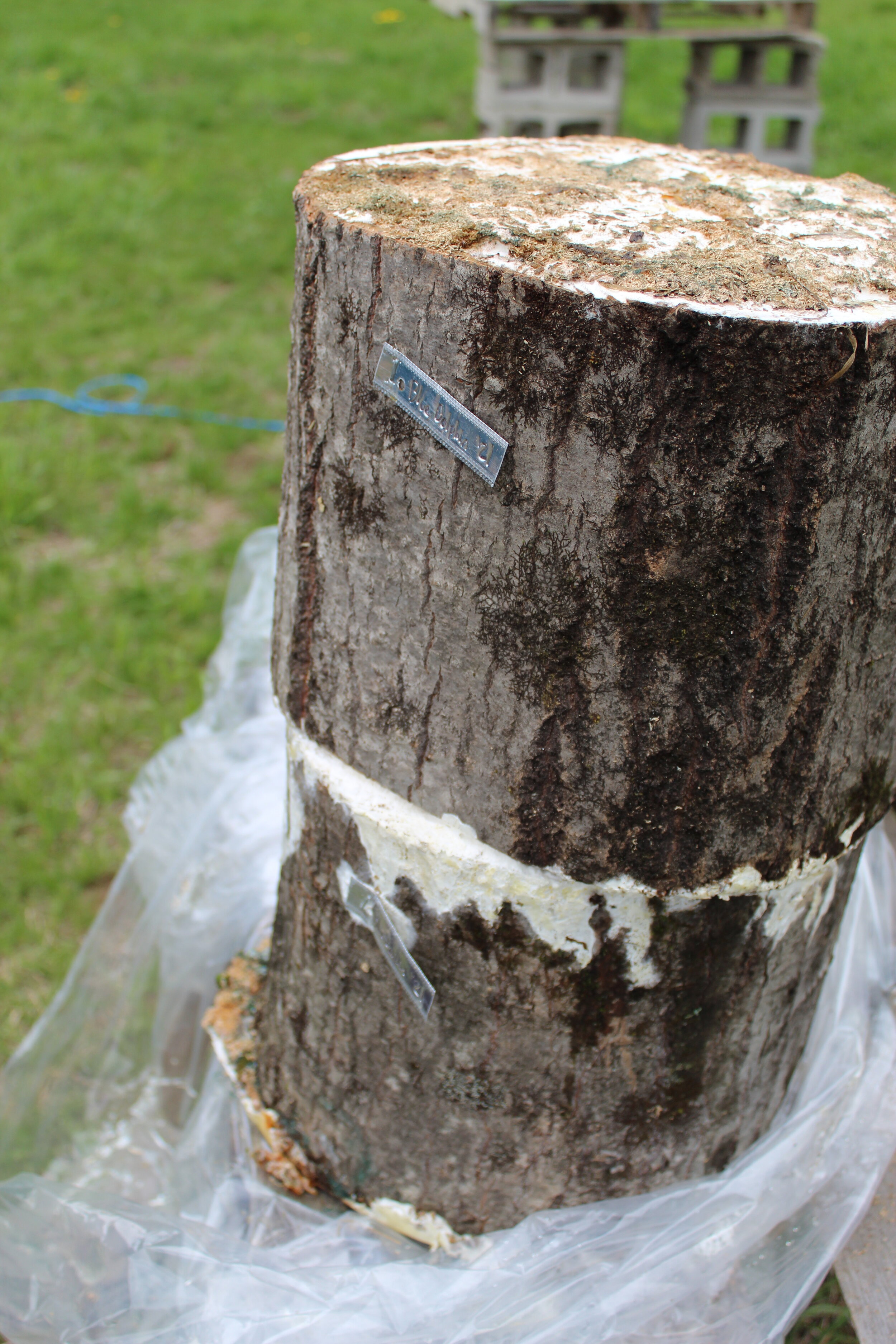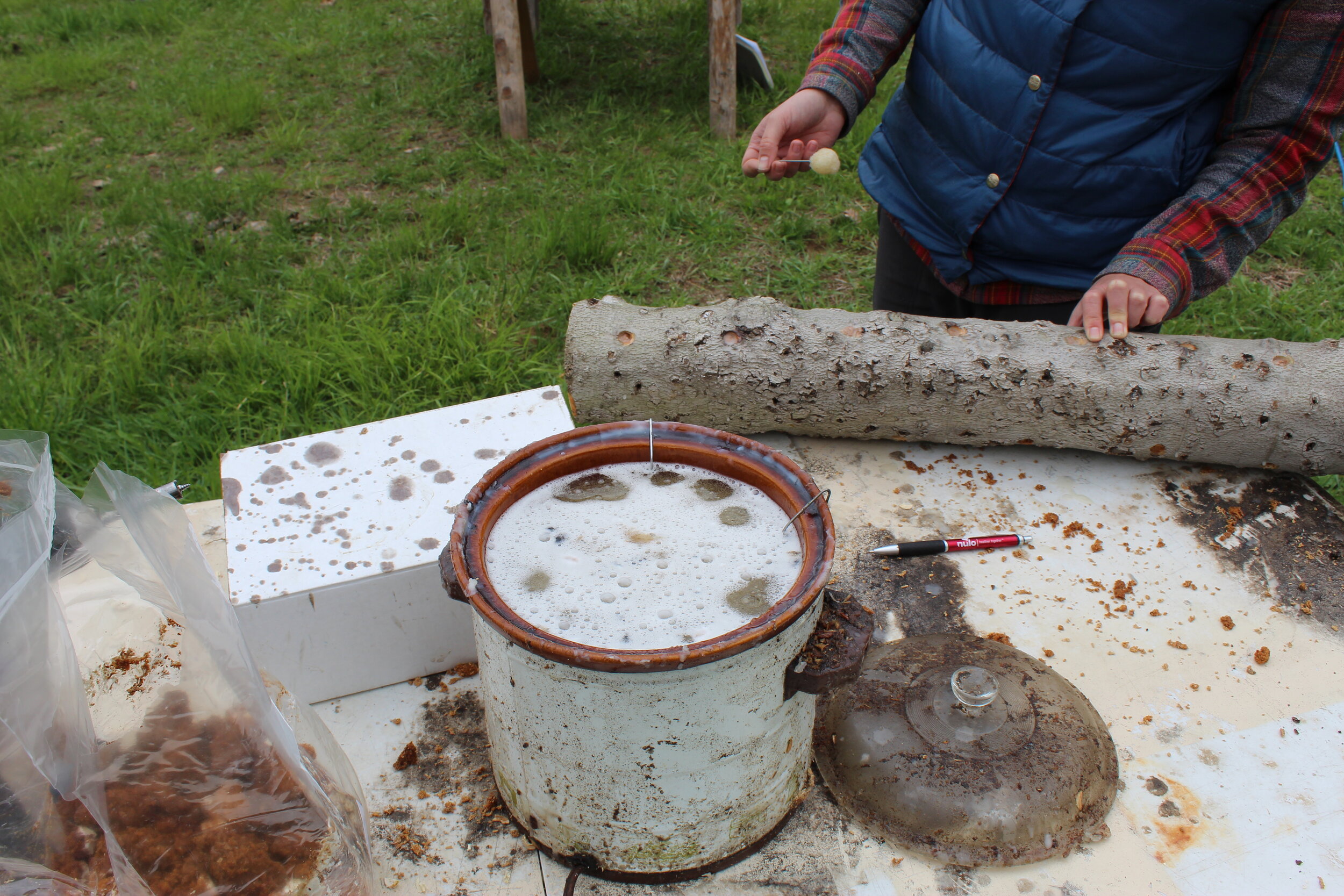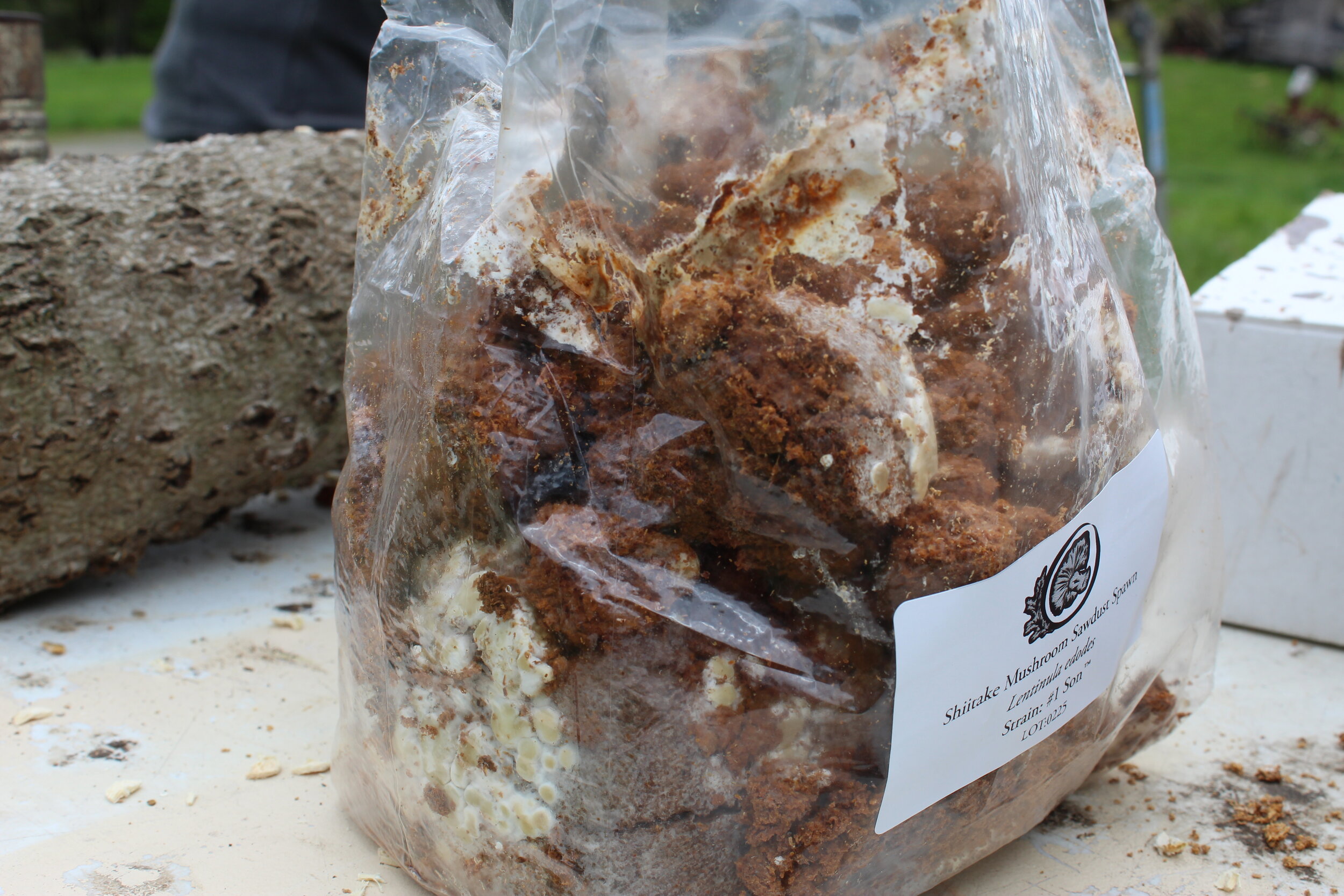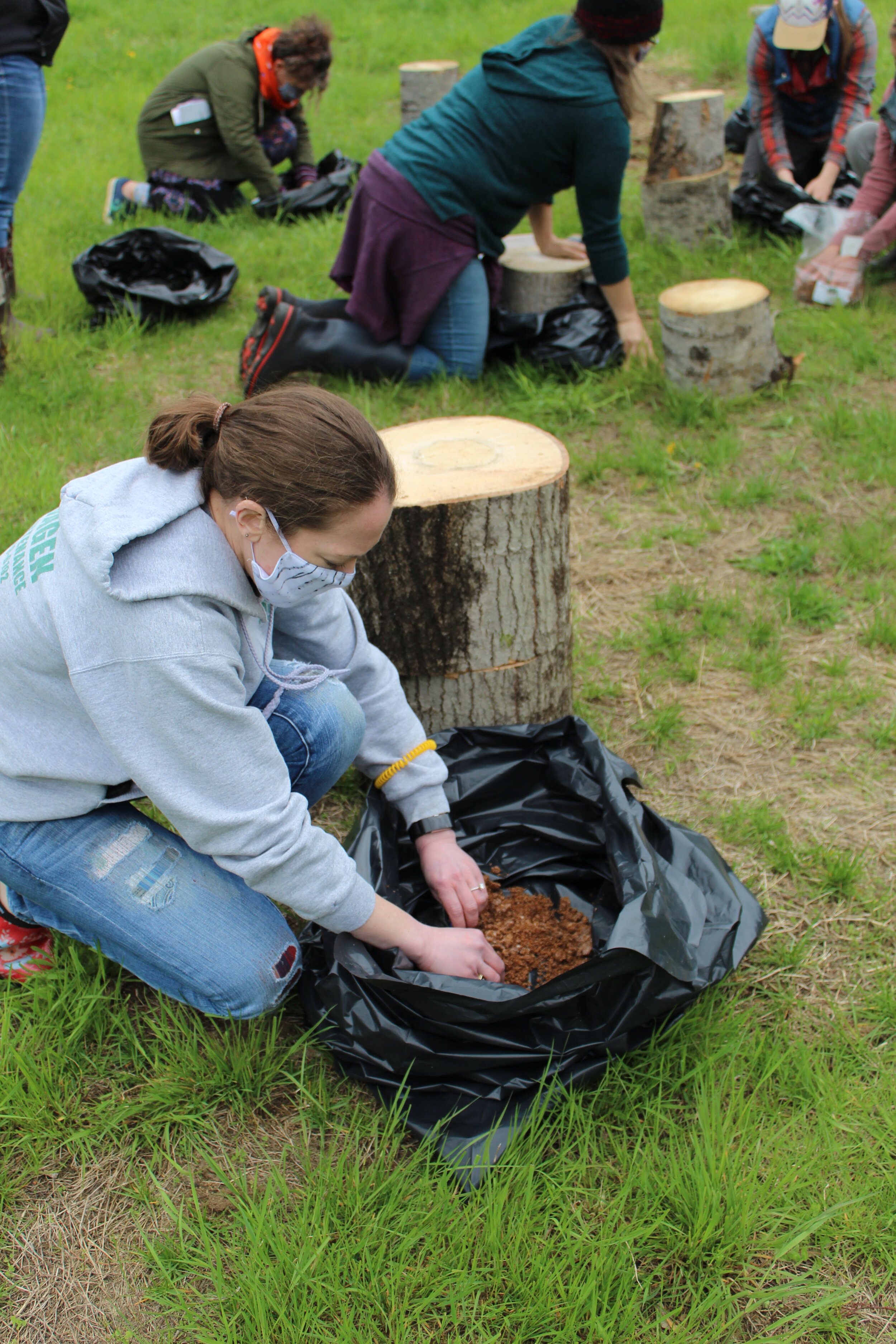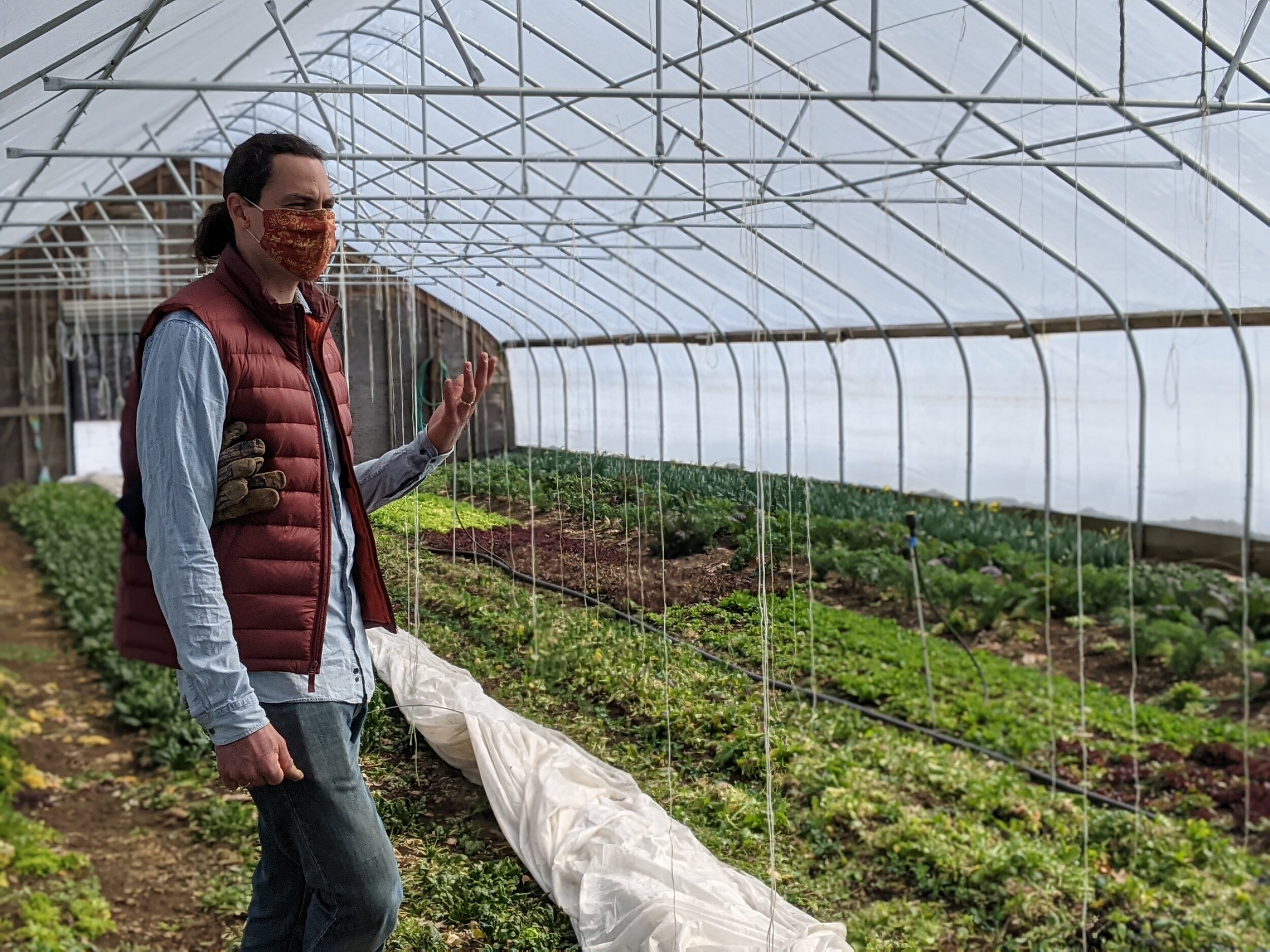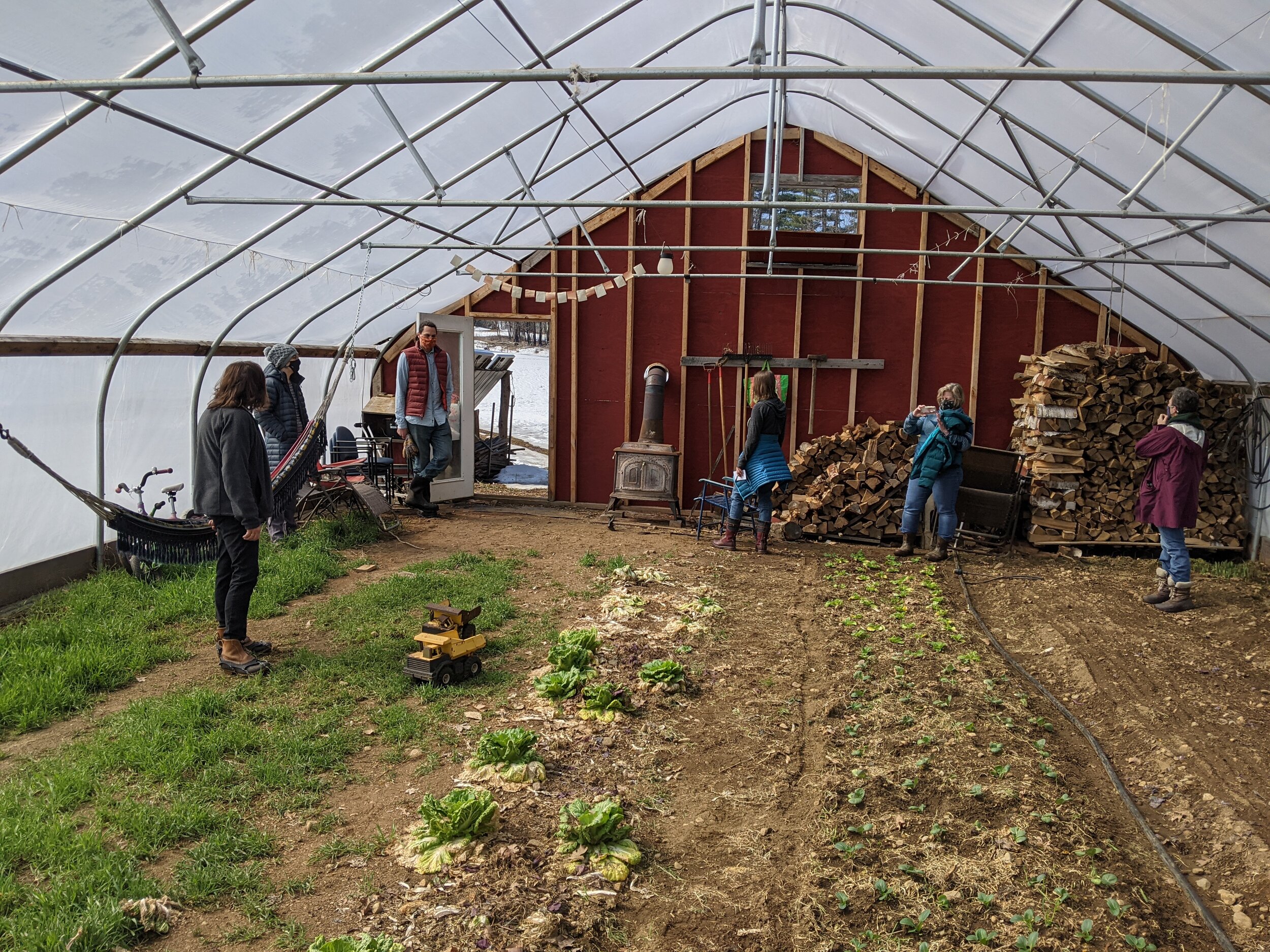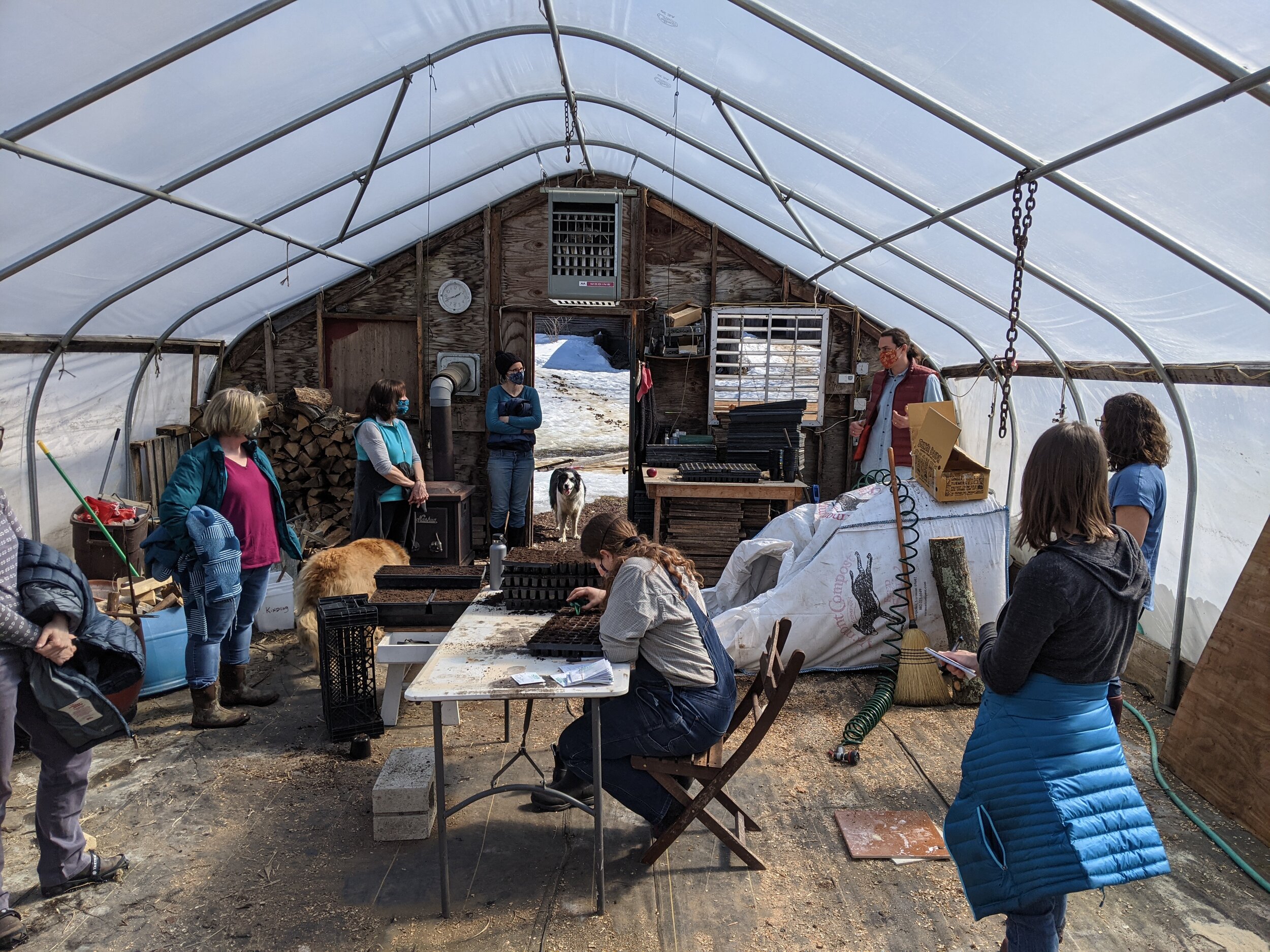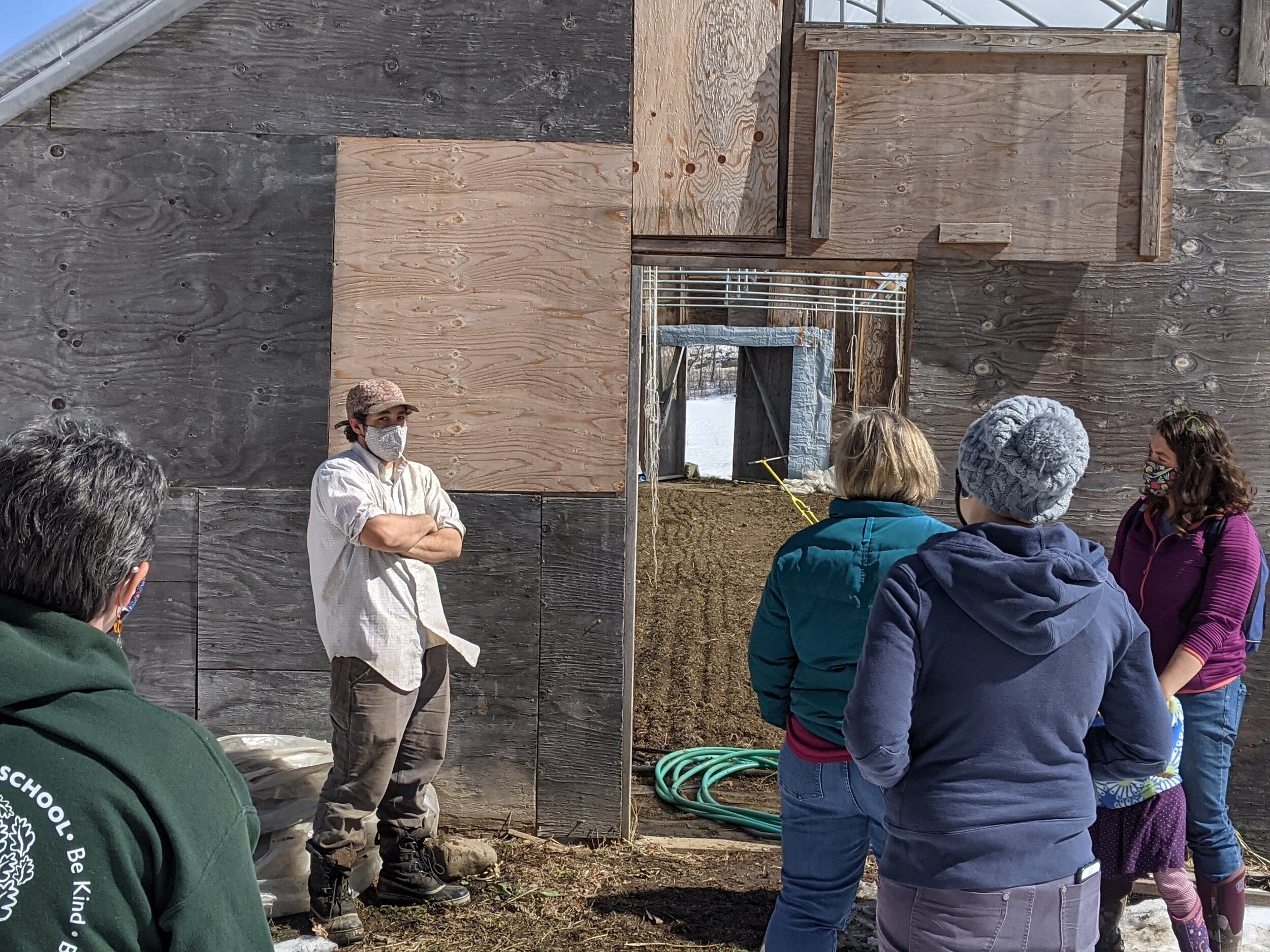By Farm to School Coach, Sheila Humphreys
My grandmother taught me that a thoughtful way to welcome new neighbors into the community is to bake them a pie and deliver it to their front door with a warm smile. Here in Brattleboro, our schools and community are in the process of welcoming approximately 100 new neighbors from Afghanistan. That’s a lot of pies!
In Windham Southeast Supervisory Union (WSESU) schools, Food Service Director Ali West and her staff welcomed Afghan students through her Where in the World are We Eating program. These special meals often take more work for the food service team, so our Marketing & Outreach Manager, Laura, joined the team to help peel potatoes and prepare the meal for the following day.
On a windy, cold Thursday in February, several Food Connects staff joined Ali and Brattleboro Union High School (BUHS) students for lunch to enjoy these delicious new flavors together. On the menu that day for the “Welcome Home Afghan Allies” meal was Borani Banjan (fried eggplant with tomatoes, mint, and garlic yogurt), Bolani (Flatbread stuffed with potato, onion, and peppers), Beef Kafta Kebab, and Lavash. The mix of flavors and spices was outstanding! Here’s what a couple of the students had to say about the meal:
“I like it. I like the naan and the meat has good flavor and seasoning. And the yogurt is good in flavor and texture.”
“Oftentimes the cultural food is a lot better than the other food.”
WSESD’s Nutrition program is not the only way the Brattleboro community is welcoming our new neighbors with nourishing food. The Brattleboro Multicultural Community Center-Ethiopian Community Development Council (MCC) is leading the effort to welcome our Afghan neighbors in many ways, including multiple opportunities each week for community members to provide a fresh main dish for lunch daily through a Meal Train site. Volunteers are encouraged to use a collection of Afghan recipes linked on the site, and feedback from our neighbors so far has been that our locally made versions of their traditional recipes are “somewhat bland.” Therefore cooks are encouraged to “be generous with spices, herbs, salt, and oil in the recipes.” Our neighbors say, “We especially want spicy food when we feel sad.” My coworker Beth and I made a meal a few weeks ago, and my kitchen smelled deliciously spicy afterward, those spices perhaps offering a tiny bit of healing to our new neighbors who have been through so much.
In addition, school garden coordinators at WSESD schools, in collaboration with Food Connects and Wild Carrot Farm, are planning to grow two culturally relevant crops in school gardens this season, gandana and nigella, and Kathy Cassin, the Garden Coordinator at Academy School, is featuring some Afghan dishes in her cooking projects with students. The Brattleboro Community and Food Connects family are so happy to play a small part in helping our new neighbors feel welcome, and we look forward to continuing to support and learn from them as they integrate into our area.




